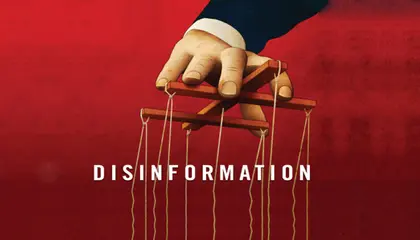Russia’s “firehose of falsehoods” will feature new tropes designed to destroy Western confidence and Ukrainian civilian confidence in Kyiv’s war effort, a counter-PSYOP body has announced.
The Center for Countering Disinformation, which monitors Russia’s propaganda on behalf of the Ukrainian government, said yesterday on its Telegram channel that upcoming themes and methods from the Kremlin will include:
- Obtain the most contemporary war in ukraine update from the Kyiv Post’s news reports today.
- Access the newest Ukraine news items published today.
JOIN US ON TELEGRAM
Follow our coverage of the war on the @Kyivpost_official.
- Messaging about Ukraine being “down to its last resources” in its summer counteroffensive;
- A scare campaign directed at Ukrainians about their government allegedly moving to mobilize 3 million more citizens for the war effort;
- Disinformation about the Zelensky administration allegedly opposing peace talks because it supposedly profits from continuing the war;
- Narratives through “experts” about Ukraine’s new acquisition of F-16s not having a major impact on the war – while at the same time calling the step escalatory and risky;
- Planned provocations for the period around Ukraine’s Independence Day on Aug. 24;
- Emotionally based “fakes and manipulations” to raise resentments between war-weary Ukrainians.
In terms of Ukraine tapping its last resources, the Center, which is a working body within the Ukrainian Government’s National Security and Defense Council, notes that Russian propaganda is using news of the deployment of the elite 82nd Air Assault Brigade in western Zaporizhzhia as a “proof point” that Ukraine is low on reserves.
On more Ukrainian citizens being mobilized into the armed forces, the Center said that “the basic narrative which propagandists will promote is that ‘Ukraine’s leadership is sending its citizens to their deaths’… which is necessary for the enemy to create division in society.”
With regard to Kyiv and President Zelensky supposedly opposing peace talks, the Center stated that a disinformation campaign will actively distribute and reinforce the narrative that… ‘Ukraine is profiting from the war.’”
The Center believes that the aim of this PSYOP tactic is to undermine allies’ practical military support for Ukraine.

Putin Vows ‘Destruction’ on Ukraine After Kazan Drone Attack
To diminish the strategic and operational value of the Western F-16s Ukraine was promised earlier this week by Denmark and The Netherlands, Russia will claim that they are not effective – be they too little, too late, or too old – according to the Center.
At the same time, because Russian propaganda has never pretended to be logically consistent, the Center believes that Russia will frame the F-16 transfer as provocative escalation – and thereby give itself more cover for terrorist-type operations against Ukrainian civilian targets.
In fact, Kyiv Post has today identified Telegram posts by prominent pro-Kremlin milbloggers that put forward similar “critiques” or otherwise seek to diminish the credibility of the F-16 announcement.
Notorious Russian propagandist War Gonzo, for example, honed in on the lack of clarity about the final number of planes that Ukraine will get from The Netherlands and then simply dismissed the development as from “the realm of fantasy.”
The Center further believes that Ukraine’s Independence Day will give Russian propagandists and operatives a premise for provocations, “knowing the russcists’ love for sacred dates.”
To tug at Ukrainian unity, according to the Center, one tactic will be to highlight the alleged lack of pain that western Ukrainians – compared to eastern Ukrainians – have felt from the war.
According to the Institute for the Study of War (ISW), Russia has been using an advanced form of hybrid warfare in Ukraine since early 2014 that relies heavily on an element of information warfare.
Russian Defense Minister Sergei Shoigu has publicly acknowledged propaganda as a key weapon of the Russian military arsenal.
“Maskirovka” – or the practice of deception – has been an official part of Russian military doctrine for more than 100 years, since World War I.
ISW notes that Russia continues to “the deployment of a vast and complex global effort to shape the narrative about the Ukraine conflict through formal and social media, but the results of these efforts have been mixed.
“Russia has kept the West from intervening materially in Ukraine, allowing itself the time to build and expand its own military involvement in the conflict,” ISW said.
“It has sowed discord within the NATO alliance and created tensions between potential adversaries about how to respond. It has not, however, fundamentally changed popular or elite attitudes about Russia’s actions in Ukraine, nor has it created an information environment favorable to Moscow,” ISW added.
You can also highlight the text and press Ctrl + Enter






